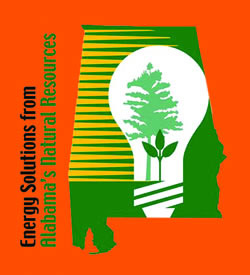New AU Center to Bolster Studies of Alternative Fuels

With the escalating worldwide demand for new sources of energy, Auburn University is launching a new center to bolster research already under way or planned for the near future in several schools and colleges.
According to AU President Ed Richardson, the university has provided a one-year grant to launch the new Auburn Alternative Fuels Initiative, which began at the start of the 2006-07 fiscal year on Oct. 1. The center will fall under the auspices of the newly formed Institute for Natural Resources.
Continued operation of the initiative or center will depend on its ability to secure external funding, but Richardson and organizers say they are optimistic that the center will be able to secure funding for continued research and development of alternatives to petroleum-based fuels.
Ralph Zee of AU's Samuel Ginn College of Engineering and Graeme Lockaby of the AU School of Forestry and Wildlife Sciences are co-chairs of a nine-member campuswide committee that is developing plans for the center.
Zee and Lockaby say that Auburn researchers are working in several areas of alternative fuels studies that, collectively, could provide a niche for Auburn as state and national leaders recognize the need for new sources of energy for application beyond motor vehicles. The initiative co-chairs said the center will focus on developing technologies that can help Alabama use its renewable natural resources to augment the nation's energy supplies.
Outreach and Extension will also play a major role in bridging the gap between university research and development of technologies in the private sector, they add.
A statewide conference at Auburn on Oct. 23-24, "Energy Solutions from Alabama Natural Resources," will bring in visiting speakers from industry, government and other universities to discuss the current state and possibilities of alternative energy development.
By then, Zee and Lockaby say, work at the Auburn center will be under way, with researchers in targeted areas gaining access to equipment, supplies, research areas, funding and other aid to coordinate and help move their research forward.
